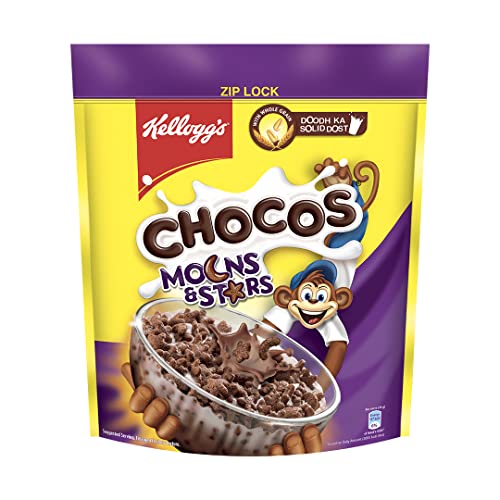The Secret to Shiny, Strong Hair: Essential Vitamins & Minerals

Contents
The Secret to Shiny, Strong Hair: Essential Vitamins & Minerals
Your hair, a crowning glory, a statement of health and vitality. But what if your locks are lackluster, brittle, or falling out faster than you’d like? The answer might lie not in expensive salon treatments, but in the nutrients you’re – or aren’t – consuming. Unlocking the secret to shiny, strong hair often involves a journey into the fascinating world of vitamins and minerals. Let’s explore the key players in this hair-raising drama.
Beyond the Surface: Understanding Hair Health from Within
Hair, unlike skin, doesn’t readily absorb topical treatments. True, nourishing conditioners and oils improve the appearance of hair, but real transformation begins from within. Each strand is a testament to your overall health, reflecting the nutritional intake that fuels its growth cycle. Think of your hair follicles as tiny, demanding chefs, requiring specific ingredients to create luscious, healthy locks. Depriving them leads to dullness, breakage, and even hair loss.
The Hair-Raising Heroes: Essential Vitamins & Minerals
Several vitamins and minerals play crucial roles in hair health. Let’s delve into the key players and understand their contributions:
| Nutrient | Role | Deficiency Symptoms | Food Sources |
|---|---|---|---|
| Vitamin A | Supports sebum production (natural oil) | Dry, brittle hair | Sweet potatoes, carrots, spinach, kale |
| Biotin (B7) | Crucial for keratin production (hair protein) | Brittle nails, hair loss, thinning hair | Eggs, nuts, seeds, sweet potatoes |
| Vitamin C | Antioxidant, collagen production | Dry, weak hair, increased hair loss | Citrus fruits, berries, peppers, broccoli |
| Vitamin D | Follicle health & hair growth cycle | Hair loss, thinning hair | Fatty fish, egg yolks, fortified foods |
| Vitamin E | Antioxidant, protects from free radical damage | Dull, brittle hair | Nuts, seeds, spinach, avocados |
| Zinc | Cell growth and repair | Hair loss, slow growth | Oysters, red meat, poultry, lentils |
| Iron | Carries oxygen to hair follicles | Hair loss, fatigue, pale skin | Red meat, spinach, lentils, beans |
| Protein | Building block of hair | Weak, brittle hair, hair loss | Meat, fish, poultry, beans, lentils, tofu |
Beyond the Basics: Lifestyle Factors
While nutrition is paramount, other lifestyle factors significantly influence hair health:
-
Stress Management: Chronic stress can disrupt the hair growth cycle, leading to increased shedding. Incorporate stress-reducing practices like yoga, meditation, or spending time in nature.
-
Hydration: Just like every other part of your body, hair needs ample hydration. Drink plenty of water throughout the day to keep strands moisturized and healthy.
-
Gentle Hair Care: Avoid harsh chemicals, excessive heat styling, and tight hairstyles that can damage and break hair. Opt for gentle, sulfate-free shampoos and conditioners.
-
Scalp Health: A healthy scalp is essential for healthy hair growth. Keep your scalp clean and free from buildup by regularly washing your hair.
The Holistic Approach: Nourishing Your Hair from the Inside Out
Achieving shiny, strong hair isn’t about a magic pill or a single vitamin. It’s a holistic approach that encompasses a balanced diet rich in the vitamins and minerals listed above, coupled with a healthy lifestyle. By focusing on these factors, you’re not just improving the appearance of your hair; you’re nourishing your entire body and promoting overall well-being. Embrace the journey to healthier, more vibrant hair—it’s a reflection of your inner radiance.

Additional Information
The Secret to Shiny, Strong Hair: A Deeper Dive into Essential Vitamins & Minerals
While the concept of vitamins and minerals contributing to healthy hair is widely accepted, a deeper analysis reveals a complex interplay of nutritional factors, their bioavailability, and individual variations impacting hair health. Simply consuming these nutrients doesn’t guarantee shiny, strong hair; understanding their mechanisms and potential limitations is crucial.
Beyond the Basics: A Detailed Look at Key Nutrients
While articles often highlight biotin, Vitamin D, and iron, a comprehensive understanding requires exploring their specific roles and synergistic effects:
-
Biotin (Vitamin B7): Biotin is a crucial cofactor in the production of keratin, the primary protein comprising hair. Deficiency can lead to brittle, thin hair and hair loss. However, studies demonstrating significant hair growth improvement with biotin supplementation in individuals without a deficiency are limited. Many observed improvements may be attributed to placebo effects or the correction of underlying undetected deficiencies. A 2017 study in the Journal of Cosmetic Dermatology found that while biotin might be beneficial in specific deficiency cases, more research is needed to confirm its efficacy for general hair growth promotion.
-
Vitamin D: Vitamin D receptors are found in hair follicles, suggesting a role in hair growth cycle regulation. Studies have linked Vitamin D deficiency to alopecia areata, an autoimmune disorder causing patchy hair loss. However, the direct causal relationship between Vitamin D supplementation and improved hair growth in individuals with sufficient levels remains inconclusive. Further research is needed to determine optimal levels and response variation.
-
Iron: Iron is essential for oxygen transport to hair follicles, supporting hair growth and preventing telogen effluvium (hair shedding due to stress or illness). Iron deficiency anemia is a known cause of hair loss, and correcting the deficiency often leads to improved hair growth. However, iron supplementation should be approached cautiously, as excessive iron can be harmful. Blood tests are essential to determine iron status before supplementation.
-
Zinc: Zinc is involved in protein synthesis and cell growth, playing a vital role in hair follicle function. Deficiency can lead to hair loss and impaired wound healing in the scalp. Zinc’s impact on hair growth is often seen in combination with other nutrients, highlighting the synergistic nature of nutritional support for hair health.
-
Protein: The building blocks of hair are amino acids, the components of protein. Dietary protein deficiency significantly impacts hair growth, leading to thinning and fragility. Adequate intake of protein, particularly those rich in essential amino acids like cysteine and methionine, is paramount for healthy hair. Examples include lean meats, poultry, fish, eggs, beans, and lentils.
Bioavailability and Individual Variations:
The absorption and utilization of these vitamins and minerals are influenced by several factors:
-
Gut health: Efficient nutrient absorption depends on a healthy gut microbiome. Conditions like inflammatory bowel disease can impair nutrient uptake.
-
Genetic factors: Individual genetic variations influence nutrient metabolism and response to supplementation. What works for one person may not work for another.
-
Underlying medical conditions: Certain medical conditions, such as thyroid disorders, hormonal imbalances, and autoimmune diseases, can significantly affect hair health, regardless of nutrient intake.
Beyond Supplements: A Holistic Approach
While supplementation can address deficiencies, a holistic approach is crucial:
-
Balanced diet: Prioritizing a diet rich in whole foods provides a wider range of nutrients and antioxidants supporting overall health, including hair health.
-
Stress management: Chronic stress contributes to hair loss. Techniques like mindfulness, exercise, and adequate sleep are essential.
-
Scalp health: Maintaining a clean and healthy scalp prevents inflammation and promotes optimal follicle function.
Conclusion:
The relationship between vitamins, minerals, and hair health is intricate and multifaceted. While these nutrients are crucial, focusing solely on supplementation without addressing underlying deficiencies, gut health, stress levels, and overall health can yield limited results. A comprehensive approach that combines a balanced diet, stress management, and targeted supplementation based on individual needs and medical advice is essential for achieving truly shiny, strong hair. Further research is needed to refine our understanding of the optimal levels and synergistic interactions of these nutrients for hair growth optimization.

